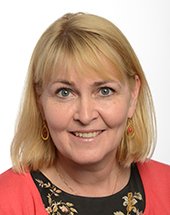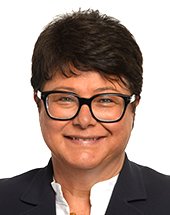19 Jan 2022
Digital Services Act
Debate & votes on amendments
Rapporteur Christel Schaldemose (S&D, Denmark)
- with the DSA, control would be taken back from tech giants and digital laws brought to the 21st century;
- the world was different when the digital law was adopted in 2000, and companies such as Facebook, Apple and Amazon did not exist or were much smaller and trade with China was not as big;
- it was time to overhaul European digital legislation;
- she stated that the DSA could become the global gold standard, and big tech nations such as the US and China were looking closely as they had done with the GDPR;
- the EU would stand up against the 'Wild West' that the digital world had become;
- she stated that illegal products and content had proliferated online, algorithms had fostered division and recommender systems destroyed young people's self-esteem;
- the digital realm had reduced distances but it had also "dug deeper trenches" between people;
- it was easy to buy products from the other side of the world, however, these did not always comply with EU regulation and it could be difficult to contact the seller if there were problems;
- strong legislation was necessary to ensure that what was illegal offline was illegal online;
- she highlighted that the DSA included a number of positive measures in the areas of consumer safety, ending harvesting of data and opening the black box of algorithms;
- consumer protection would be improved in three areas;
- first, there should be a single point of contact with social media platforms, making it easier for users to get in touch if their content is removed or their account blocked. It would also allow the users of marketplaces to interact with a human;
- second, online marketplaces should remove illegal products quickly and effectively, and contact the consumers who had already bought them;
- third, they sought to include a right to seek compensation for consumers and businesses directly from the platforms if they did not comply with the DSA;
- on the harvesting of data, there would be no more targeted advertising for minors and their data would not be harvested or used for commercial purposes. Moreover, withdrawing consent to targeted advertising would be easier and dark patterns banned;
- the Commission and the Digital Services Coordinator would be able to look into reports on the impact of algorithms and platforms would have to take action and face the consequences if an algorithm promoted, for instance, eating disorders or self-harm;
- the Parliament was sending a strong message to the Council, and they were establishing strong legislation with two main objectives;
- consumers and users protection;
- economic growth should be fostered in a transparent and democratic framework;
- she was proud of the result, and she thanked the Shadow Rapporteurs as well as all the contributors, the Commission, and the Presidencies;
- she welcomed that they would move to trilogues soon as European citizens deserved legislation for a safer internet.
Henna Virkkunen (EPP, Finland), EP ITRE Rapporteur
- she thanked the other Committees for their cooperation;
- as Rapporteur, she had focused on the ICT industry, innovation, and small and micro enterprises;
- it was important to ensure fair competition, a level playing field, and respect for European values and legislation, especially for SMEs;
- foreign companies should comply with EU rules when operating in the European digital market;
- SMEs and startups played a crucial role in European digital competitiveness and growth;
- they should ensure that digital market regulation set no obstacles for growth. Moreover, the regulation should foster the scaling up of companies and investment in Europe;
- they should avoid excessive administrative burdens for small enterprises, as she noted that they needed flexibility and legal certainty to grow. The EP ITRE Committee text introduced exemptions for SMEs.
Geoffroy Didier (EPP, France), EP JURI Rapporteur
- Very Large Digital Platforms (VLOPs) were motors for innovation, were present in citizens' daily lives and had become public actors;
- they were vehicles for freedom of expression but also for hate speech, sexual harassment and illegal trade, which the EU had a duty to stop;
- so far, there had been a legal void, so it was time to end the "anarchy" in the web;
- he regretted that the text was too timid and that it was a long way from the good intentions expressed by President Macron;
- they would continue fighting to provide a healthy environment for young and vulnerable consumers;
- he stressed that nothing justified allowing smartphones to become citizens' worst enemies.
Patrick Breyer (Greens/EFA, Germany), EP LIBE Rapporteur
- the DSA was a unique opportunity to take back control of the digital age;
- the EP LIBE Committee had proposed amendments to strengthen the report;
- the report protected secure encryption, however, it should also prevent data leaks by giving users the right to use digital services anonymously when possible;
- the IMCO report ruled out the legal obligation to use error-prone upload filters, but it should also prevent platforms from introducing conditions against freedom of expression and media freedom;
- he called on his colleagues to shape the digital future with the EU's fundamental rights and values.
Margrethe Vestager, Executive Vice-President for a Europe Fit for the Digital Age
- View the speech.
- she had been looking forward to that day;
- she thanked Rapporteur Schaldemose as well as the Rapporteurs from other Committees for their work and their interest, which had been encouraging;
- she noted that they had come a long way in the 12 months after the proposal;
- the general approach had been unanimously adopted. With the vote and the debate in the EP they were sending a signal to citizens' that European democracy had the strength to deal with the issue and set rules that showed citizens that they were in charge;
- the EU's strong rulebook would be enforced fast. This would mean further removing barriers to the digital single market, empowering people to make choices, and giving more responsibilities for digital services providers;
- the guiding principles of making the internet safer, protecting everyone from illegal content (including unsafe and unauthorised products) and securing freedom of expression remained fundamental;
- what was illegal offline should be illegal online was not just a slogan, as the EP's work had made it real;
- enforcement was key. It would be achieved with the clarity of the regulation and a well-resourced and strong enforcement system that required EU cooperation. She stressed that the DSA would be enforced strongly and fast, in respect of the legislator and for the benefit of citizens.
Thierry Breton, Commissioner for the Internal Market
- View the speech.
- he welcomed the debate on the DSA, and thanked the Rapporteur and MEPs for their tireless work that they had been put since the publication of the Commission’s proposal in December 2020;
- this debate and vote in Plenary represented a historic step towards the end of the ‘Wild West' in the information space;
- he recalled the attacks on the US Congress and Capitol Hill in January 2021, which set a before-and-after in the role of digital platforms in a democracy;
- these events were the results of years of uncontrolled hate speech, incitement to violence, disinformation and destabilisation strategies spread on social platforms, the latter who had also largely profited;
- he also recalled his meeting with Frances Haugen;
- these events and talks had confirmed the urgent need for legislation and the imperative not to lower their ambitions;
- he summarised the DSA in four main points:
- clear rules for the removal of anything illegal in the digital space, including products, services or content, on the principle that what was illegal offline should be illegal online;
- new risk-based obligations on very large platforms and supervisory and sanctioning powers for the Commission, with fines of up to 6% of annual turnover or even temporary exclusion from the internal market;
- transparency measures for platforms as regards the “black box of algorithms”, especially concerning targeted content and advertisements;
- uniform application of the rules across the EU and to all players, EU and non-EU;
- he was confident that the proposal would be adopted under the French Presidency by the end of June, and shared the level of ambition and the sense of urgency;
- he noted that the increased lobbying efforts had been vain, however, he urged to remain vigilant to not let corporate interests interfere with the EU citizens’ general interest;
- he believed that the DSA and the DMA would become a reference framework for democracies worldwide in the regulation of the digital space.
Mikuláš Peksa (Greens/EFA, Czechia), EP ECON Rapporteur
- the DSA could have been one of the greatest European achievements;
- they had managed to create a set of rules that provided interoperability, a more open digital market, better rights for users and fewer powers for tech giants;
- he welcomed the changes regarding transparency as platforms now would now be obliged to explain and label the changes in their terms and display;
- the EP had listened to the protests against the Copyright Directive and ruled out the general monitoring obligation;
- he stated that instead of banning upload filters there were only vague promises;
- the report did not ban the collection of personal data that fuelled surveillance capitalism;
- in his view, the main problem was cross-border removal orders, as they could lead to deletion of content that was legal in one country due to a decision taken in another. He highlighted the risk posed by the Rule of Law crisis and the authoritarian drift in some Member States (MS);
- providing tools to diminish freedom of expression was unacceptable and would not help to create a smoother digital single market;
- the DSA was necessary but not at all costs, i.e. giving dictators better weapons. He was looking forward to discussing this with the EP and the MS.
Roman Haider (ID, Austria), EP TRAN Rapporteur
- the COVID crisis had shown the situation of digital services;
- it was high time to adopt the DSA, in order to provide legal certainty for users, consumers and companies;
- he would have prefered stricter rules on some issues. However, the rules on freedom of opinion went too far and were almost censorship;
- this was shown in the vague concepts used in the text (i.e. disinformation and hate speech);
- moreover, platforms would be liable for the content and digital corporations would go before Courts, which was an attack on freedom of opinion;
- they should abide by the principle "what was lawful offline should be lawful online";
- he stated that the DSA was not compatible with a free and democratic society.
Sabine Verheyen (EPP, Germany), EP CULT Rapporteur
- the DSA was a chance to set a milestone regulating online services;
- the report did not go far enough in certain points;
- the EP CULT Committee opinion had not been sufficiently taken into account;
- the DSA had serious impacts in certain areas of sport and culture as it allowed digital platforms to regulate according to their own rules;
- providers of media services at the national level were regulated and had to respect professional standards irrespective of how their services and content was consumed;
- the independence of the media sector had to be protected;
- disinformation had led to laws, which should be appropriately implemented in all MS;
- media content not allowed offline should be illegal online;
- she called on her colleagues to support the amendments proposed by the CULT and JURI Committees.
Jadwiga Wiśniewska (ECR, Poland), EP FEMM Rapporteur
- she thanked the shadow rapporteurs for their cooperation;
- the EP FEMM Committee opinion improved the position of women, as it included obligations for platforms to combat violence;
- they also had considered children, who were very vulnerable;
- they introduced obligations to create codes of ethics and introduce preventive measures;
- some of their requests had been included in the IMCO draft report;
- there was still a long way but they had made progress to protect children and women against cyberviolence.
IMCO Shadow Rapporteurs
Arba Kokalari (EPP, Sweden)
- the EP would send the signal that it wanted a digital market and internet with rules for businesses and safety for users;
- the internet had made citizens' lives easier, as now they could keep in touch, access information, shop online and participate in the public debate. She noted that it would revolutionise humanity in yet unknown ways;
- citizens should feel safe, as now they were exposed to illegal content, fraud, disinformation, foreign interference and dangerous products;
- she welcomed that the EU lawmakers had listened to these concerns and they had united behind a strong proposal;
- in her view, as the negotiator for the EPP, the most important things were;
- first, that they were creating a framework to remove illegal content quickly, ending the "Digital Wild West" where biggest platforms were setting the rules and criminal content going viral;
- second, it should be ensured that the internet remained an open space and the DSA would increase the rights of users, transparency and protect freedom of speech. Platforms should no longer censor opinions or block accounts without explanation, and users should be able to contest these decisions;
- third, a unified digital market where entrepreneurs, startups could compete without barriers or bureaucracy, following a single set of rules;
- the EU was letting China and the US "run the show" and it was time to take the lead, so the DSA should be a worldwide example for a digital future with safety, openness and innovation.
Alex Agius Saliba (S&D, Malta)
- the situation was now different to 10 years ago when the platforms arose, as they had become big and indispensable for society, the economy and even democracy. Therefore, platforms controlled the internet, people and politics, as they had access to the content that citizens' accessed and shared;
- the digital world was like the wild west, and people were defenceless, exposed and exploited for their vulnerabilities. He stated that private companies were weaponising technology for their own gains and profit;
- the DSA was the right tool to answer people's demands to have a safe and healthy digital ecosystem and set a gold standard in the regulation of big tech;
- he congratulated the Rapporteur as the report preserved the principles of the country of origin, no general monitoring and state-down obligations. Moreover, it provided better choices for consumers and transparency measures (i.e. ban of dark patterns, algorithm accountability and greater responsibility for recommender systems);
- the DSA included stronger protection and protection mechanisms for people with disabilities;
- the S&D Group had kept consumer protection as a priority;
- the DSA should empower people to take back control of the online content that they wanted to read, watch and share;
- the EU should be ambitious and address all issues such as consumer protection, targeted advertising, surveillance, transparency, accountability and the tech giants' ability to make a profit;
- if they did not act they would miss a once in a lifetime opportunity.
Dita Charanzová (RE, Czechia)
- the internet was a mirror of the best and worst of society;
- she noted that neither the offline nor online realms could be perfect, however, they should try to make it a better and safer place that respected freedom of speech while supporting European businesses;
- they should create a better system to fight illegal content while giving citizens the right to challenge removals;
- moreover, tech giants should be required to be transparent and address their inherent risks;
- providers, including marketplaces, should understand their social responsibility and should be honest to users;
- children should be protected;
- the system should at the same time support the growth of e-commerce and allow innovation in Europe without overregulation. It should also work for startups and scale-ups;
- the DSA created a system that could work for the whole internet, however, it was just the first step and there was much work ahead.
Alexandra Geese (Greens/EFA, Germany)
- the internet used to be a "wonderful place" to share information, meet people and discover the world. However, now it was not the case, and she noted the Rohingya genocide promoted on Facebook, girls driven to anorexia and the storm of the Capitol Hill;
- she questioned how democracy would survive with social media spreading hate and lies;
- the EP was taking a big step to save democracy and the internet;
- she stated that no Government or platform had the right to censor legal speech. She highlighted that the DSA would hold platforms accountable for what they did and not what their users thought;
- platforms collected citizens' data, as it was not even necessary to have a Google or Facebook account to be spied on, and used it to built profiles for sell ads and keep people on the platform as long as possible;
- recommenders systems disseminated hate speech and disinformation faster than other content as it has been shown that fear and anger made people stay on platforms longer and interact with content;
- therefore, the internet was a distorted mirror of the real world;
- the DSA introduced orders by national authorities, clear rights for users, complaint mechanisms and independent dispute settlement mechanisms;
- however, it did not go far enough to protect citizens as, for instance, it only banned surveillance advertising for children. She noted that US Congresswoman Anna Eshoo had introduced a bill to ban surveillance ads;
- regarding VLOPs, the DSA would introduce risk assessments, independent audits and access to data for independent researchers and NGOs, shedding light on the platforms' practices, and allowing to learn how targeting and engagement-based systems tampered with democracy;
- the DSA was a first step and a fundamental law for the digital age, and she was proud that the EU was the first continent to adopt such rules.
Alessandra Basso (ID, Italy)
- she thanked the Rapporteurs and MEPs for their work;
- she stressed that what was illegal offline should be illegal online, but also that what was legal offline should also be legal online;
- she was unhappy with the results of the DSA negotiations despite the group’s contributions;
- the article regarding the accessibility of people with disabilities was very important as content should accessible for all;
- she called for the deletion of the provision regarding trusted flaggers, raising concerns about their independence and impartiality, and noted the disparity in the treatment of content notified by trusted flaggers compared to content notified by citizens;
- on governance, she regretted that the Board would not be effective;
- on consumer safety, she urged the platforms to verify that the third-country traders they hosted were in conformity with EU legislation;
- she called for large platforms to conduct at least an annual systemic risk analysis and adopt measures to mitigate these risks;
- as there was harmful but not illegal content, she noted the risk in letting the platforms decide the line between freedom of expression and freedom of information. Moreover, their evaluation could be carried out by automated systems based on biased algorithms;
- she regretted this “wasted” opportunity to have greater control over platforms in order to protect citizens, instead of restricting their freedom of expression.
Adam Bielan (ECR, Poland)
- he thanked the Rapporteur and welcomed the horizontal approach;
- the ECR group focused on maintaining the key elements of the E-Commerce Directive;
- more specifically, he focused on maintaining freedom of speech safeguards and on removing incentives that could cause hasty removal of content by platforms and lead to soft internet censorship;
- the ECR group supported an open-internet and submitted amendments to prevent the excessive removal of content;
- he called for clarity concerning the moment when the platforms should step in to tackle illegal content;
- they welcomed the inclusion of their suggestions to challenge platform discussions on content moderation;
- he believed that the text could be further improved, especially regarding the definition of “social media” and improved administrative capabilities for the MS;
- he hoped that the trilogues would lead to a better digital environment for EU citizens.
Martin Schirdewan (The Left, Germany)
- years of inaction and passivity from lawmakers had led to digital surveillance capitalism by the four biggest digital companies;
- the DSA aimed to introduce new rules and provide transparency, however, the result was disappointing;
- he noted the progress made regarding dark patterns, access to people with disabilities, and access to data;
- however, he stressed that the trading of personal data was not targeted by the proposal;
- while he welcomed the ban on targeted advertising for minors, he suggested a complete ban on the collection of highly sensitive personal data;
- Facebook and other digital giants should not take advantage of personal health, political or sexual data for their own purposes;
- he noted that the broad exemptions for SMEs would create huge administrative burdens and calls transparency requirements for all companies employing over 10 people;
- he agreed with Frances Haugen that online platforms should no longer "hide behind" trade secret rules, or companies such as Airbnb ‘hiding’ behind the country-of-origin principle to escape transparency requirements;
- he called for good cooperation between the MS and between the MS and online platforms to fight against illegal content;
- he believed that the text did not reflect the views of civil society but of big businesses.
Thierry Breton, Commissioner for the Internal Market
- he thanked the MEPs for this excellent debate which had confirmed that the Commission’s horizontal, risk-based approach with a strong and structured governance system was the right way forward;
- he acknowledged that certain specific services or sectors would have difficulties and ensured that they would be dealt with specific regulations;
- beyond the fight against illegal online content, he agreed that freedom of expression, consumer protection and media pluralism should be safeguarded;
- the idea of the DSA was to offer a solution proportional to the size of the companies;
- the DMA and DSA were two sides of the same coin;
- he noted that the whole world was watching them and EU citizens were waiting for them. The debate had shown that now was the time to act and that they were ready.
Margrethe Vestager, Executive Vice-President for a Europe Fit for the Digital Age
- she thanked the MEPs for this detailed and rich debate addressing freedom of expression, consumer rights and self-assessment - these were key elements in a democracy;
- the saying that what was illegal offline should be illegal online was a way for democracy to show its power;
- she noted the alignment with the Commission’s proposal for robust rules to promote the Single Market and to ensure effective enforcement with regards to the challenges of cross-border services;
- the Commission was looking forward to working with the Parliament and the Council for a swift and successful resolution.
Rapporteur Christel Schaldemose (S&D, Denmark)
- she thanked her colleagues for this good and interesting debate;
- she noted the broad support for the IMCO report and hoped that it would be reflected in the votes;
- she believed that this text was an example of a good, well-functioning democracy;
- the negotiations with the Council would not be easy, however, she was certain that they would adopt a very good and needed legislation;
- she stressed the urgency;
- the adoption of the report in plenary represented the first major step in taking back control from the platforms;
- she was looking forward to the negotiations with the Council.
The simultaneous interpretation of debates provided by the EU institutions serves only to facilitate communication amongst the participants in the meeting. It does not constitute an authentic record of proceedings. One Policy Place uses these translations so this text is only a guide and should not be relied on as an official account of the meeting. Only the original speech or the revised written translation of that speech is authentic.
Related Procedure(s)
See all
Related posts
RELATED INFORMATION
people Alessandra Basso
Alessandra Basso Patrick Breyer
Patrick Breyer Dita Charanzová
Dita Charanzová Geoffroy Didier
Geoffroy Didier Mikuláš Peksa
Mikuláš Peksa





This site uses cookies. By continuing to browse the site you are agreeing to our use of cookies. Find out more.
About us










